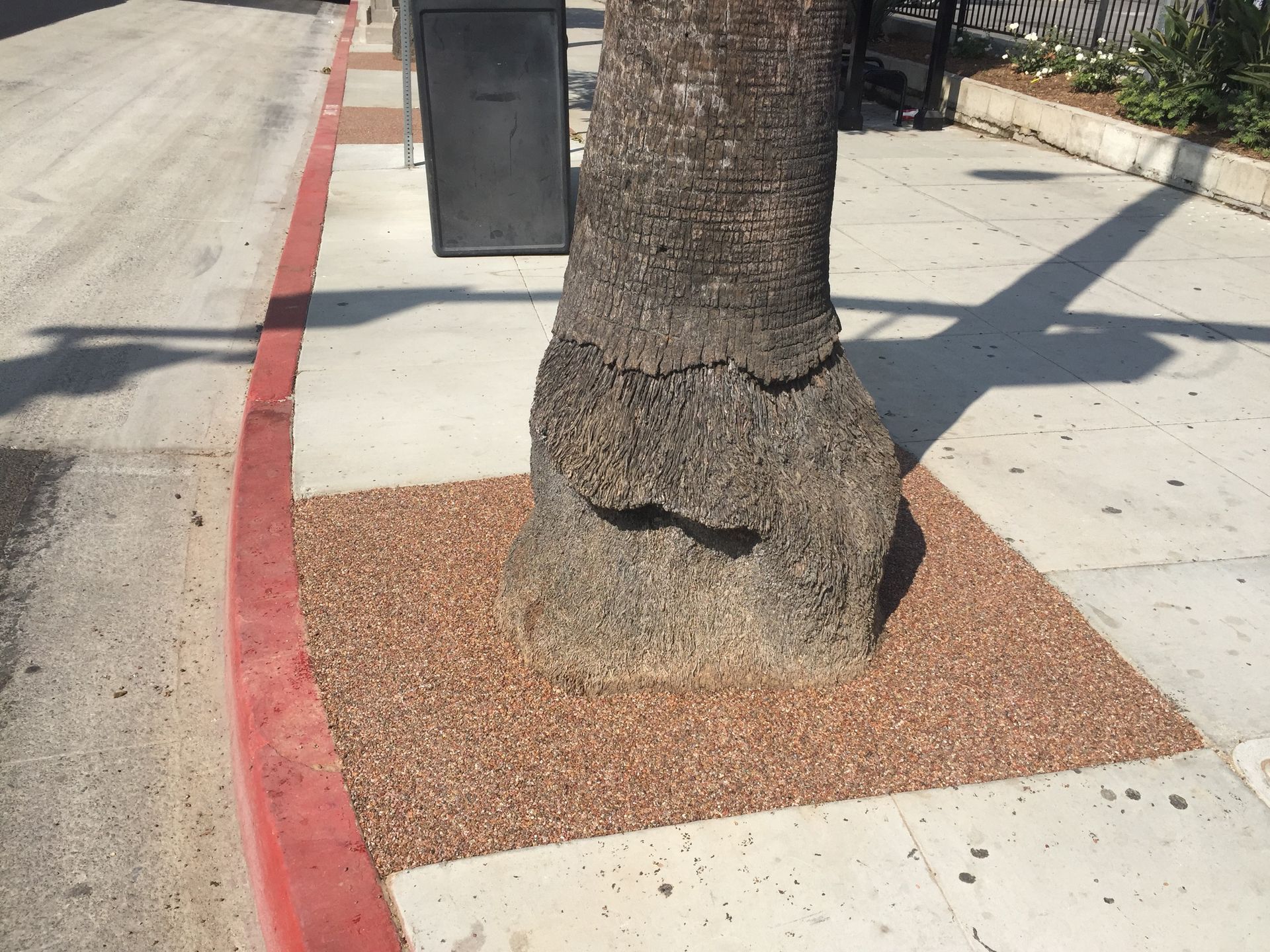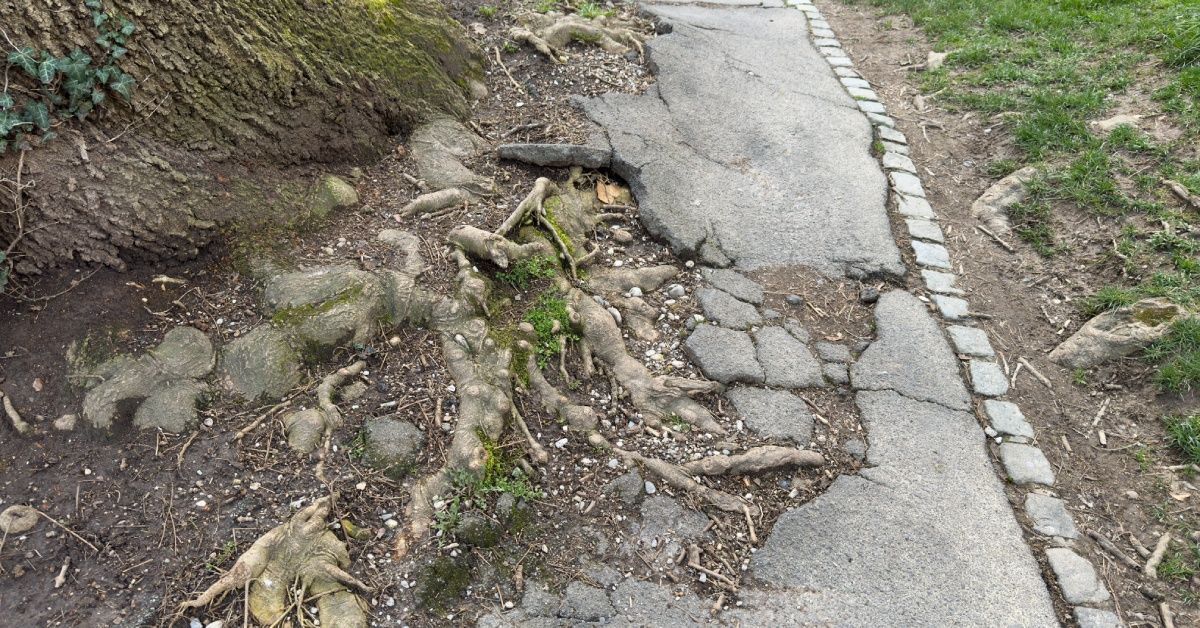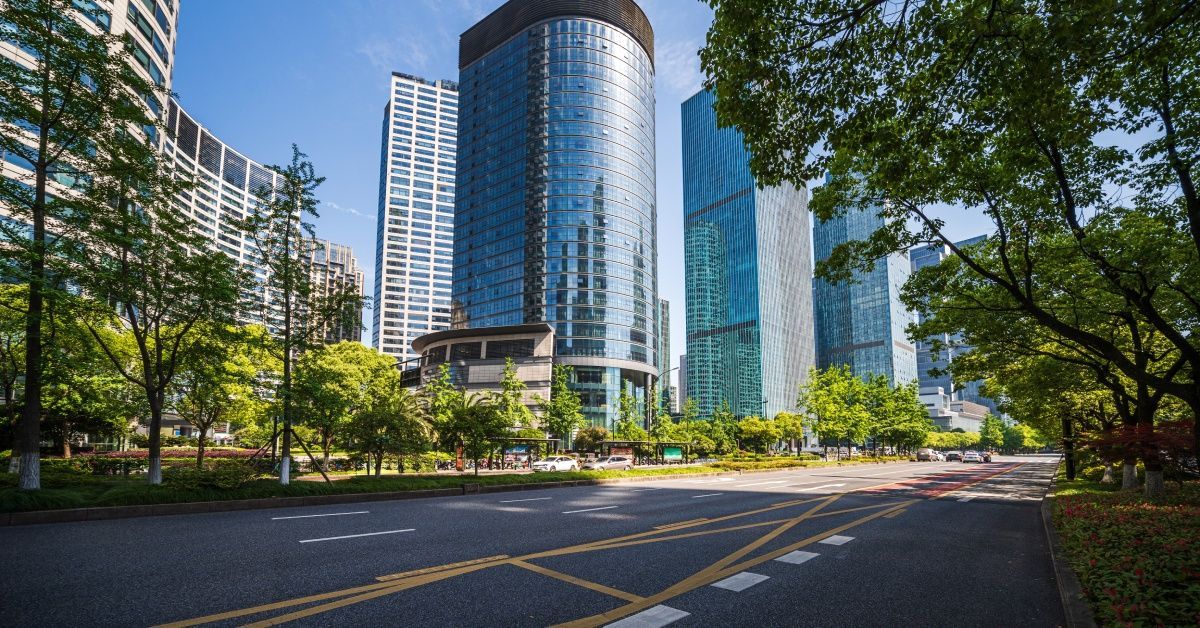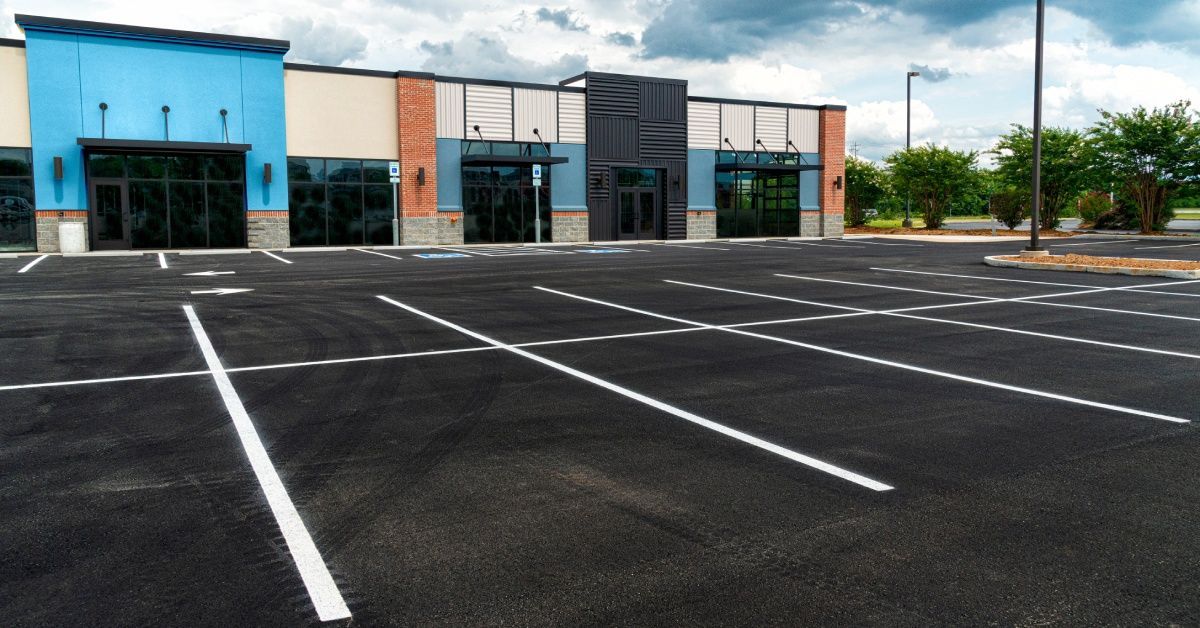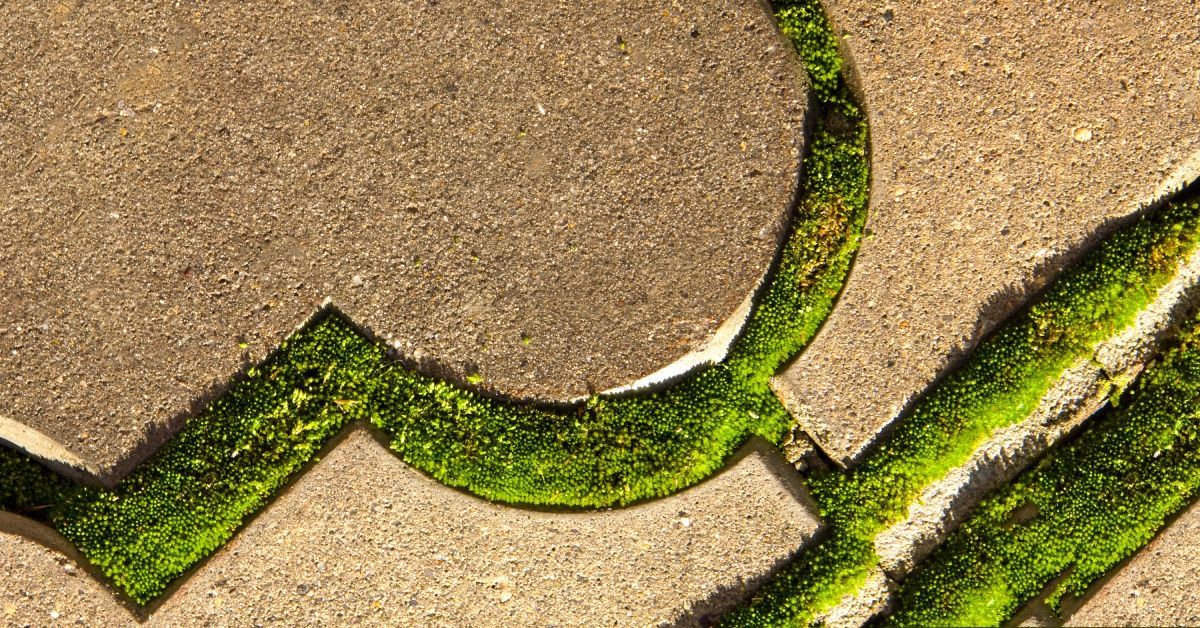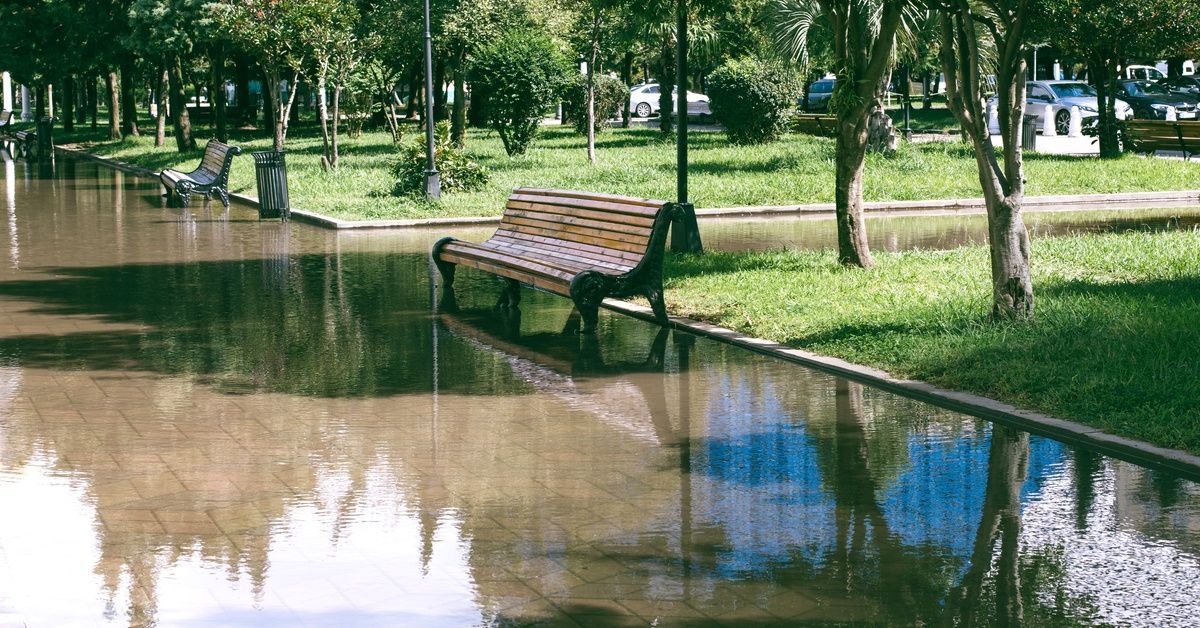Adding Permeable Paving in the Maintenance of Parking Lots
Parking lots and commercial properties often go hand in hand. We live in a car-based society, and customers, tenants, and employees need a place to stow their vehicles when not in use. Asphalt and concrete serve their purposes where parking lots are concerned, but they also have flaws. Concrete, asphalt, and similar materials can crack, break down, wear out, and require costly repairs over time. Permeable paving is an excellent alternative to traditional materials. Sustainable, cost-effective, and ideal for most properties, resin-bound paving can enhance the lifetime and usefulness of your parking lot and property. Here are a few more thoughts on adding permeable paving to aid in the maintenance of parking lots.
What Is Permeable Paving?
Before we proceed, here are a few insights into permeable paving, what it’s made of, and why it’s so great. Permeable paving is also known as pervious paving. It consists of different materials, mostly recycled substances compiled into aggregate. Like other paving substances, permeable paving provides a solid and firm surface; unlike those materials, it allows water to pass through. This is important for several reasons, which we’ll address below.
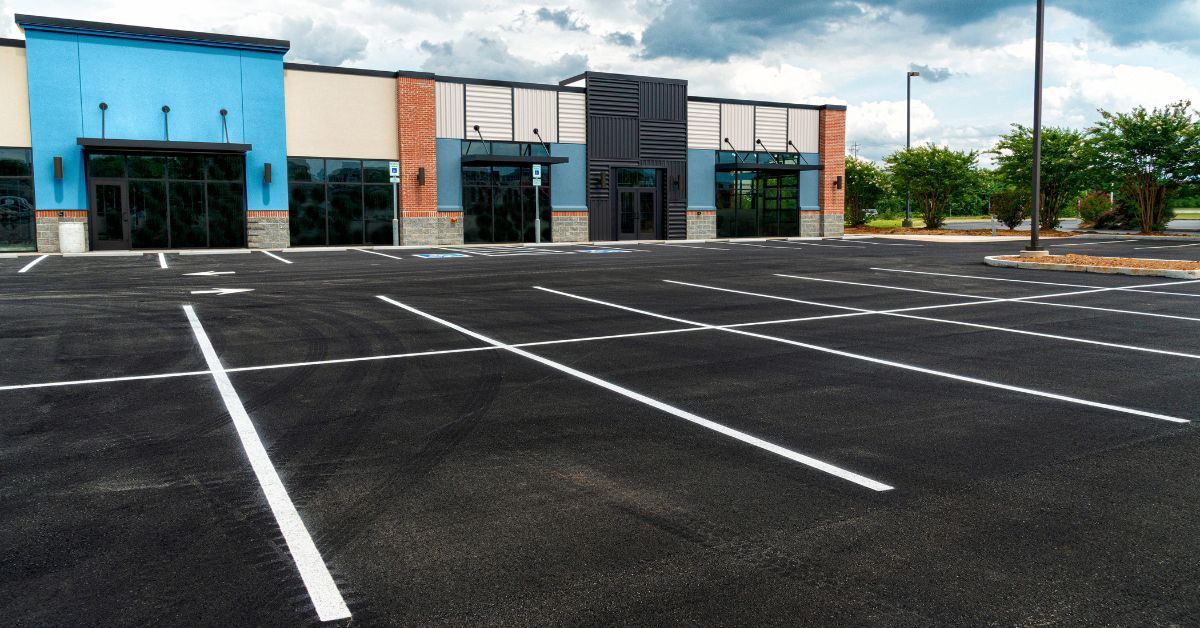
Permeable Paving for Parking Lots
Permeable paving has multiple applications, including for paths tree pits. Your commercial parking lot can also benefit from this type of paving.
Improved Drainage and Reduced Flooding
Permeable paving allows water to drain through the aggregate; concrete and asphalt do not. With the latter, this creates the potential for pooling, flooding, polluted water runoff, and structural damage. It’s important to keep the water flowing because it reduces the risks of damage due to water accumulation in your parking lot.
Enhanced Environmental Sustainability
Once the water passes through the permeable paving, what happens next? The ground below the paving can absorb the water, but that’s not the end of the process. Eventually, it returns to the groundwater supply. This means the local municipal water system doesn’t need to work as hard to redirect and purify it. Reducing runoff and flooding also prevents any parking lot pollutants—think engine oil, gas, grease, heavy metals, and other chemicals and liquids—from contaminating local bodies of water and killing off flora and fauna.
Permeable paving also meets green building practices and contributes to achieving Leadership in Energy and Environmental Design (LEED) standards. This enhances your property’s appeal and your green initiative street cred!
Cost Savings Over Time
Make no mistake. Concrete and asphalt are affordable paving substances, and permeable paving comes with a higher price tag. However, you get what you pay for. The cost of installation and materials for permeable paving pays for itself over time. Resin-bound paving is longer-lasting and doesn’t develop cracks and potholes as soon as traditional paving materials.
Permeable paving also reduces the deleterious effects of water ingress, the enemy of buildings and parking lots. In some regions, property owners face costly stormwater management fees to offset pollution caused by impervious surface runoff. An investment in permeable paving pays off over time.
Looking Good
With permeable paving, you’re not restricted to a spectrum of greys and blacks. This type of paving consists of various materials, providing multiple hues and styles to choose from. Permeable paving has less of an industrial look about it, making your parking lot appear more inviting and professional. You pay more upfront, and the investment really shows. Tenants and clients will be impressed with the new lot.
Heat Island Mitigation
Is it getting hotter? Rises in temperatures are far more pronounced and noticeable in asphalt and concrete parking lots, forming what we call “urban heat islands.” These paving materials absorb heat, and human and vehicular activities only increase the temperatures. When nighttime comes, it’s harder for the lot and surrounding area to cool down as the asphalt or other materials release heat captured during the day. Permeable paving can prevent heat islands since they are made from lighter-colored materials with higher reflectivity. They don’t absorb as much heat as traditional paving materials, making the surrounding area cooler, as well.
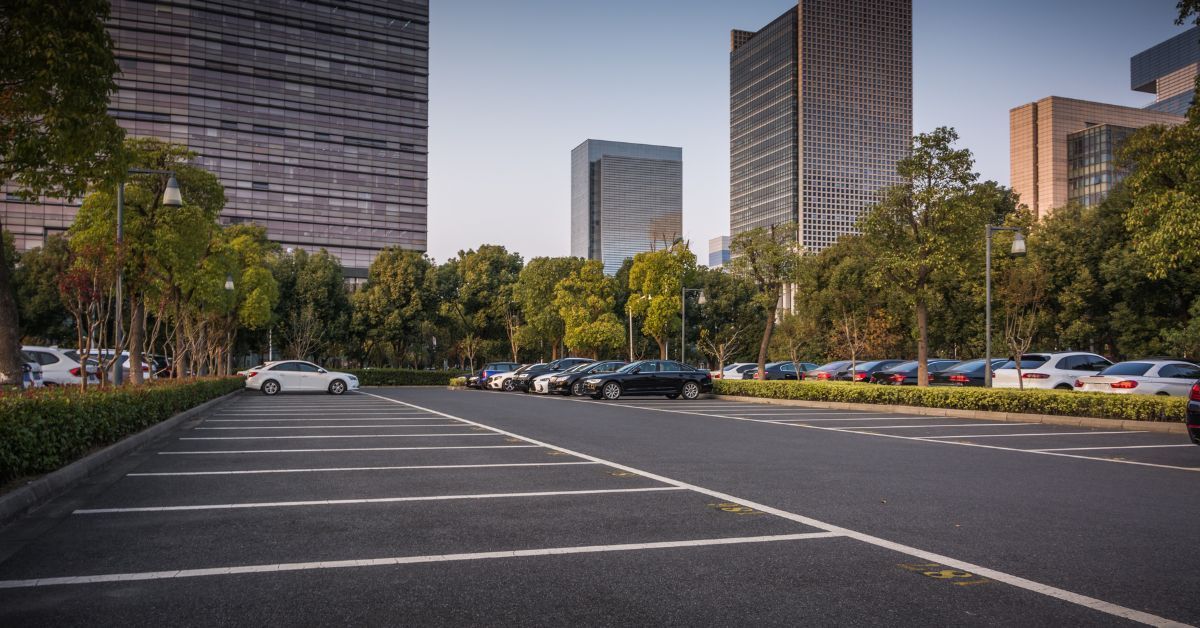
Staying Compliant
Check your local laws for rulings on stormwater management, sustainability, and other issues affecting the local ecosystem and quality of life in the community. You may find restrictions on what you can and cannot use in the construction of your parking lot. Permeable paving tends to be favored over other materials due to its many beneficial qualities. Staying compliant means less chance of facing fines, legal action, and the ire of the community.
How To Implement Permeable Paving in Your Parking Lot
Assess Your Needs
Consider these factors before deciding on a paving material:
- The size of the parking lot
- The volume of traffic
- The local climate
- Nearby structures and waterways
- The quality of the soil on and around the property
Also, determine whether you’ll prioritize drainage, sustainability, aesthetics, or other factors. Discuss these with the contractor, as they will undoubtedly make suggestions, as well.
Choose the Right Material
You can choose from several types of permeable paving materials, and they all have advantages and considerations. Some resemble asphalt yet allow water to pass through. Others are more like concrete and present a special mix that creates voids for water infiltration. Permeable gravel is another excellent choice. Discuss your options with the paving professional, keeping project time, budget, and local regulations in mind.
Periodic Maintenance
Permeable paving requires less maintenance than traditional materials, but that doesn’t mean you can neglect it entirely. The paving professional will outline what your paving material requires to keep it looking good and stay in shape. Generally, clean off the surface to remove debris and prevent clogging. Trim weeds and grass, clear away snow, and note if water fails to drain after a rainstorm. Watch for signs of damage or wear, and promptly address any issues to prevent further problems.
Those are just a few notions about adding permeable paving in the maintenance of your parking lot. Permeable paving is the perfect choice for parking lots and other surfaces. If you want to learn more about what
resin-bound paving can do for your property, contact us today for a free estimate!
